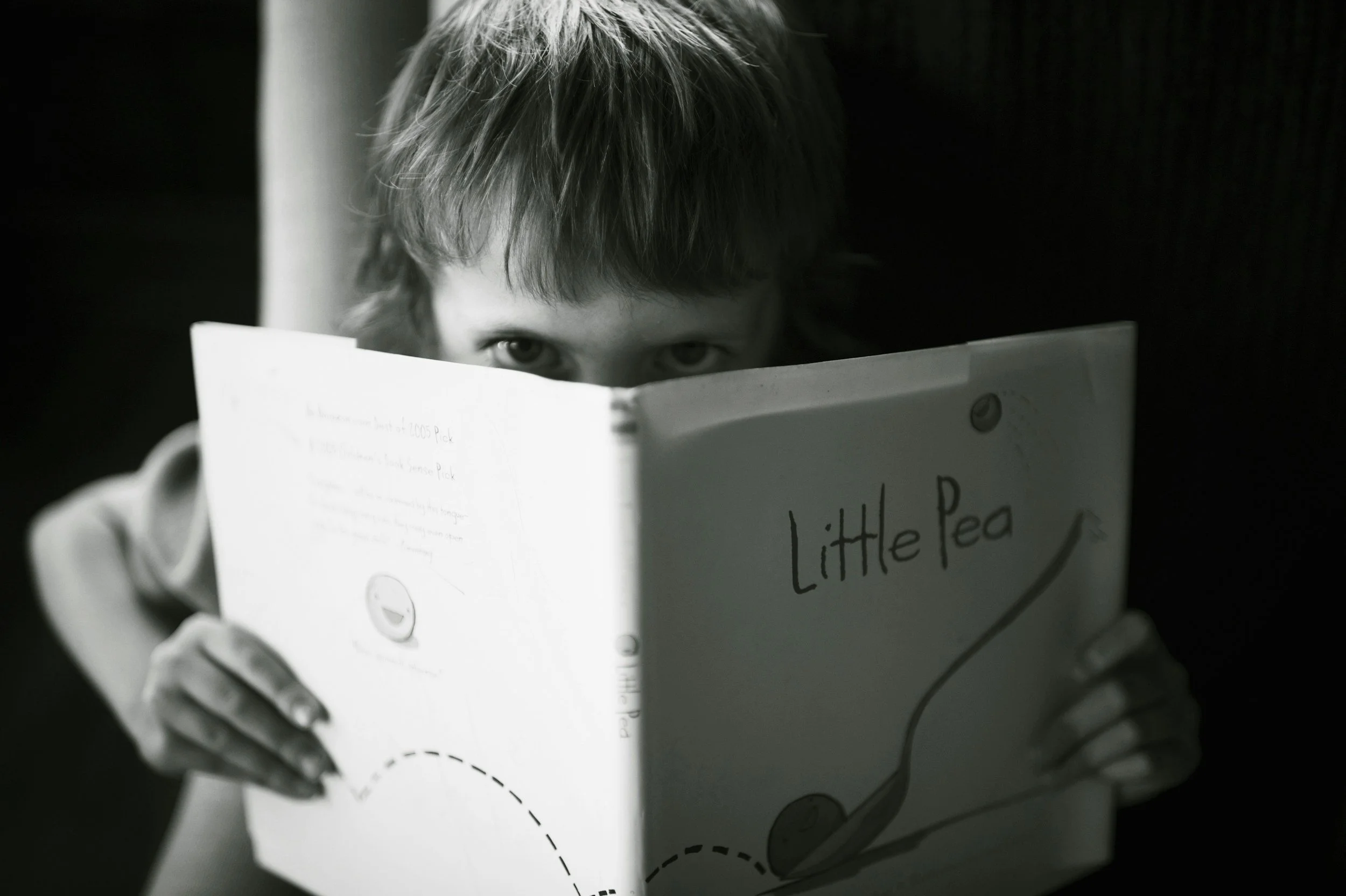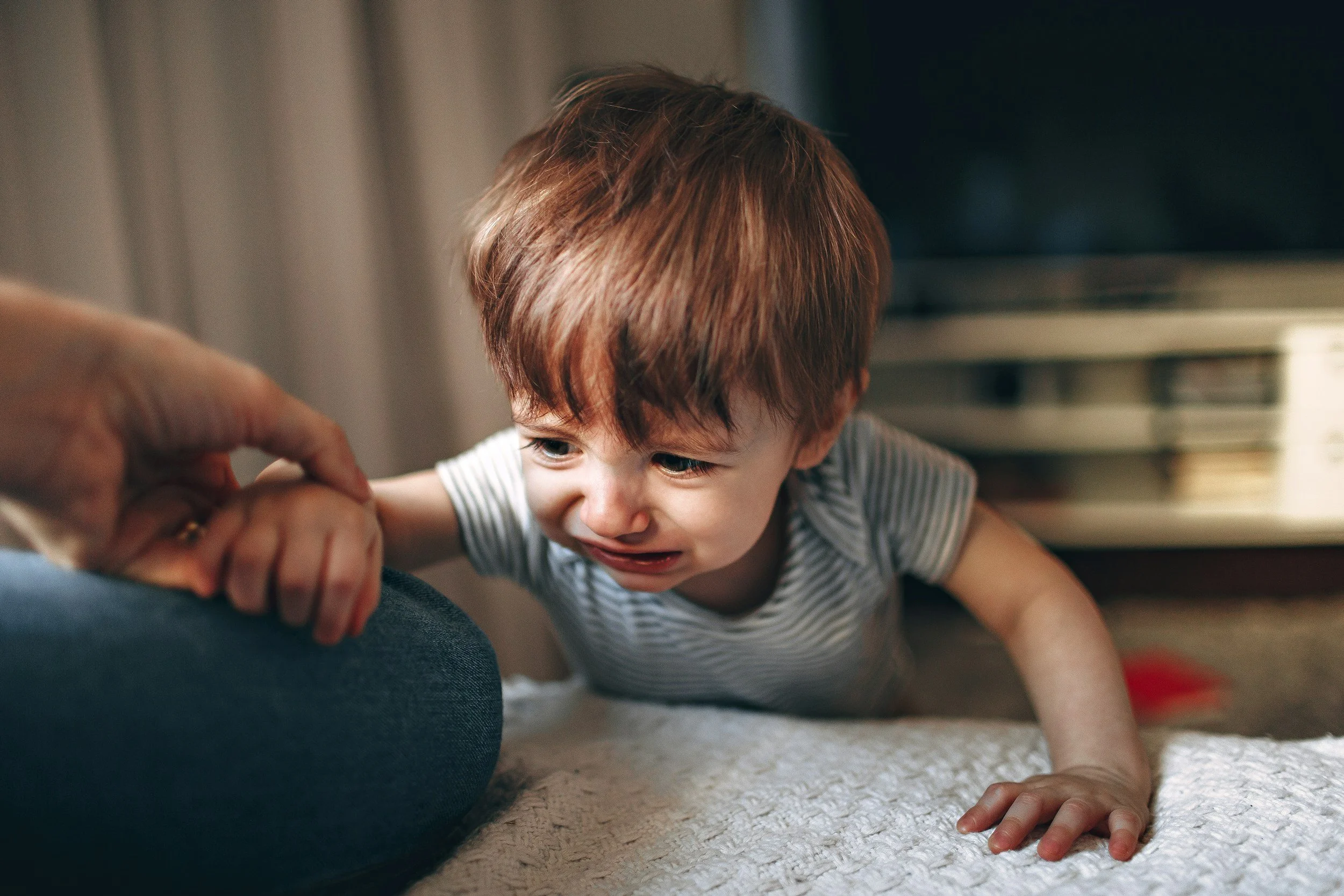Blocked Care? How to Enjoy Parenting Again
Remember the elation you felt when your baby was born? Or alternatively, the very first time your child did something to make you feel upset? It seems we never stay in one mood for long: there are so many emotional ups and downs in parenting. And consequently our self-perception as good or bad parents can be constantly in flux.
Any kind of lack of confidence in our ability to parent, insecurities, discouragement, or maybe just frustration—all that is completely normal. And it happens to everyone, even the best. Everyone experiences bad feelings, and sometimes those bad feelings can cause us to act in a way towards our children that is unparental. Every time our bad feelings stop us from being great caregivers, then we’re experiencing something experts call blocked care.
In neuroscience terms, blocked care is when our brain senses danger and we switch from open, creative, empathic and playful to scared and defensive.
It might sound strange, but even an infant can set off feelings of self-defense in an adult. Consider the tenth time the baby has woken you up in the night, all of a sudden you feel like screaming at him, “Why won’t you let me sleep??” — as if the baby could understand. Your self-defensive system is kicking in to tell you that this baby is stopping you from getting what you desperately need (sleep) and that you should protect yourself from it or fight it. So the sleep-deprived parent may feel tempted to either stop caring about the child’s needs (flight) or to yell at the baby (fight).
Thankfully, there are strategies we can use to re-engage with our children and move past blocked care. One of the most helpful resources I've found is Brain-Based Parenting: The Neuroscience of Caregiving for Healthy Attachment by Daniel A. Hughes, PhD, and Jonathan Baylin, PhD. This book helps parents understand recent brain research in ways that we can directly apply to our parenting. For example, the book teaches how to form loving bonds with our children and stay motivated to care for them despite inevitable bad feelings. The authors make a strong case that parents need to know their brains better in order to parent more effectively—and enjoy the process.
I want to share with you what I learned about blocked care and give you hope that we can overcome the conflicts we experience with our children. That these ill-feelings are not just the result of poor parenting techniques or broken children, but sometimes they arise from our own overtaxed or even underdeveloped parenting brains. And there are ways to help our brain parent better.
causes of Blocked Care
We are triggered into self-defensive attitudes towards our children by:
-Sudden and negative thoughts about ourselves or our children
-Sudden and negative emotions : shame, anger, fear or sadness
-The sudden recalling of past experiences of poor caregiving from our parents (conscious or subconscious)
As you can see, it is easy to trigger blocked care. But on the positive side, we can learn to overcome it.
The first step in overcoming blocked care is to realize that many of these negative memories, emotions, thoughts, or feelings that cause the unparental behaviour usually happen spontaneously without our necessarily wanting them. They are “triggered” in the sense that we don’t always consciously awaken them, but situations may evoke them.
We can prolong the feeling of blocked care by feeling the emotion and then choosing to be angry at our child. Or, by leaning into a negative assumption without looking for a solution. For example, we might begin to recall a memory of how our child did something to annoy us, and since he has done something again that reminds us of that earlier event, we may choose to seek some kind of revenge. It may sound pithy, but resentment does build even between parents and small children. Not letting go of our anger, holding on to bad memories, refusing to forgive, all these things can cause chronic blocked care. The solution is not to assume that the negative feeling is “right” but to pause before acting and examine the situation more fully.
In a nutshell: Getting out of blocked care and staying parental usually involves switching from our instinct/gut reactions to more self aware and intentional actions. That is, we allow ourselves to feel the emotion, or recognize the memory, or acknowledge the thought, and then we choose an action that we think would be the most appropriate—not just the one that initially seizes our instincts.
The more often we choose to make conscious decisions, and over and over, the more our parenting brain will mature. The authors Hughes and Baylin detail that a first-time parent’s brain will have less synapses connecting the emotional brain to the rational brain. Developing this connection between our emotions and our rational self takes time and repeated effort. In other words, don’t be frustrated if you’re a new parent and you don’t look like the parent you wanted to be. You’re just not that parent yet. More time, continued effort (practice, practice, practice), as well as learning from our mistakes, will eventually get us to where we want to be. And with that continued effort, yes, the youngest child will get a better parent. And, we will have mended and repaired that relationship with the oldest child to the point that we can say we love parenting all our children.
What does normal caregiving look like?
Normal caregiving includes an approach and reward system with our child: we are attracted to being with our child and are rewarded when we are with that child. In other words, we feel pleasure in our caregiving. That’s right, the same kind of pleasure that we get from other things and even the best of things in life—like ice cream and friendships and what have you. When caregiving is not pleasurable, we are probably experiencing blocked care.
Blocked care is a normal part of parenting. And as I mentioned above, it’s not always our fault. Sometimes it is triggered by small things, and sometimes by big things—like a death in the family. The important thing is not so much that blocked care happens, but becoming aware of it and having a toolbox to use in order to get ourselves out of it.
The authors suggest a formula to overcome blocked care using the acronym PACE:
Play
Acceptance
Curiosity
Empathy
Play
When we play, we tell the fear centre of our brain, the amygdala, to calm down. The amygdala is the part of the brain that registers and remembers fear. It tells our body, “Hey watch out, there’s a tiger!” So if we can soothe our own amygdala, then we can work to soothe our child’s brain, and get out of a tense situation. Playfulness does a number of things for any relationship: it lightens things up, it offers hope for a better connection, it secures unconditional acceptance, it awakens the positive side of life, reduces shame, increases trust and safety, allows one to feel liked, and increases caregiving.
Here’s an example:
Eg: You’re annoyed your child won't clean up his toys.
Play: Make it a game. Children are easily distracted and usually can't focus on two emotions at the same time. Tell your son that he is a super hero and that being this super hero allows him to tidy his toys faster than lightning. Reward him with an imaginary badge.
Acceptance
Though play comes first in the formula (and allows for a great acronym), the first strategy that parents should use when they experience blocked care is acceptance. Only when we accept a situation as it is—not as we would like it—do we calm our amygdala down and allow the executive part of the brain to interject and help us make more mature decisions.
Just understanding the nature of blocked care can allow us as parents to both understand and feel more empathy for ourselves. When we think, “Oh, this is just blocked care I’m experiencing, not a major crisis” we’re not diminishing but we’re not catastrophising either. We’re putting ourselves back in the driver’s seat and saying, ok, this is happening, so what’s my next step?
Here’s an example:
Eg. It's past midnight and your child is still awake. They are normally are sleeping. You’ve got an exam tomorrow and you’re feeling overwhelmed and frustrated and don’t know what to do to make your child sleep.
Acceptance: accept that it's happening so that you can stop freaking out and give your mind space to be creative and come up with a solution.
Curiosity
We are curious about our children when we try to understand what is unique about them. We imagine what they might be like as they get older, and as we dream of their best selves, we help them to grow by pruning and encouraging them with this uniqueness in mind.
Here’s an example: It would be like having a pair of identical twins. Though they look exactly alike, you as the parent begin to tease out the small differences between them, starting with basic and quantifiable traits, (this one eats more, this one less) until they get older and these differences become more nuanced. As the authors note, although it may begin as a rational exercise, it is not a rational exercise at the core, it has more to do with our particular bond with the person: reflectively, emotionally, spiritually, and viscerally. It has to do with how we reflect on the relationship with our mind, heart and body and how we make meaning of all the data we get from observing them.
Here is another example, even when your child was an infant, you knew what your child needed even more than your mother did. It’s not that your mother is not good with children, but she has not spent as much time with your child as you have, for example. We are tuned in to our children’s lives. In this way we can strongly predict our child’s thoughts, emotions, wishes, and intentions. We become more in tune with our child the more curious and open-minded we are of their behaviour and experiences.
However, all this deep intuition can get kiboshed if we are in a state of stress. When stressed, our amygdala tells us that we are in danger and we must protect ourselves. Consequently, our child’s poor behaviour may easily be interpreted as offensive. With acute or chronic stress, we are in danger of becoming preoccupied with our personal safety and emotionally closed to taking in new information about our child.
Interacting with our child should leave us feeling fascinated and energized. When we are less stressed, more open-minded, we can be open to both our own feelings and those of our child’s, whether they are positive or negative feelings. And to enter into this more open state, we don’t have to suppress our stress, we have to simply not allow it to choose our behaviour. We can be aware, for example, of the stress at work, and with that understanding, not allow our ill feelings to bias our perception of our child’s tantrum—or to take it personally.
In a non-curious state, we may simply react with anger to the tantrum. If we allow ourselves to be curious, even if we are feeling stressed ourselves, we can pause the gut reaction, and make a more thoughtful response. We can begin to make sense of our child’s behaviour, reflect a bit more, and then make a better decision as to how to regulate the child’s emotional state.
Curiosity is marked by:
-fascination
-understanding
-flexibile thinking
Finally, curiosity is always marked by holding back that initial reaction and trying to make more sense of the situation before coming to any conclusions.
I think it is easier to understand curiosity if we apply it to ourselves. Imagine you are home early, make dinner, and then relax on the couch with a book. Later, your spouse comes home, sees you on the couch, and suddenly blows up on you about not caring that they are home late and have a meeting and how they won’t be able to eat because they don’t have time to cook dinner. Once that partner realizes what really happened, they’ll really wish they had stuck their foot in their mouth.
Curiosity is just that, seeing something bad, holding back our gut reaction, gathering more data and making a more informed choice about how to react to a situation. We do this in order to protect the relationship from potential harm but also to show that we are human, to accept that we don’t fully know the other person and that there is always more to learn about them.
Here’s a final example:
Eg. Child reacts angrily and violently when you ask him to come for supper.
Curiosity: acknowledge the anger then switch to curiosity by asking why they are upset.
Empathy
While playfulness helps us to answer our children’s positive emotions, empathy helps us to answer their negative emotions. Through empathy we show our child that we are aware of their distress, we will not leave them alone to manage it on their own, and that we will help them regulate. In other words we help our children move from feeling stressed to feeling okay again. When the emotions are very positive, we help regulate the emotions in order to enhance them. When the child is experiencing very strong negative emotions, parents help reduce the experience of these negative emotions. We laugh when they laugh and weep when they weep, so to speak.
If we were to counter their negative emotions with apathy or even a strong rationalistic mindset, our children may not feel like we “get” them, or may even sense that we are judging them. The authors encourage parents to meet children where they are at, to mimic the intensity of their state. In other words, to convey with our touch and the sound of our voice that we understand their pain, while remaining in that parental state that is imagining already the next step of how we can begin to regulate our child.
Blocked care causes us to feel less empathic towards our children. This may look like, for example, us dismissing a problem when our child presents to us their problem. The more we suppress our ability to empathize, the more we don’t allow ourselves to be moved by our children’s pain, the less we are able to. This suppression of empathy may lead a parent to eventually not only sound judgmental, but feel judgmental as well. Consequently the children may not feel safe to open up to them about their distress and the parents may eventually recognize that there is distance between them and their child.
The difference between a parent showing empathy and exhibiting blocked care may be seen in the parents’ response. The parent may appear to be calm and rational, and they may seem to have good intentions in redirecting their child’s behaviour. To put it simply, the parent exhibiting blocked-care will be solutions oriented rather than relationship-oriented. A parent showing empathy will first try to connect with their child and understand what has happened. They may or may not come up with a solution. Sometimes just opening up to our child’s need will calm the child down enough that they come up with their own solutions.
I was thinking of an example in my own life. Sometimes it is tempting to dismiss my child when he has gotten hurt because I know it is so easy (they’re so easily distracted) to give him a candy and let him forget about it. When I tried this method with my one son, he soon caught on and was often getting “hurt” and getting quite a lot of candy. Because this child was sensitive, I had been starting to get annoyed with all his many aches and pains and had thought the candy solution would be a great way to skip over his grievances and move on with my life. I began to realize on the one hand that he was somewhat addicted to candy, and on the other, I was missing an opportunity to get to know my child and to grow in relationship with him. Once I saw those booboo moments as an opportunity that I could use to get closer to my child, and in a child-led way, I came to welcome them in my life. And consequently, he began to regulate faster because he felt more secure with me.
What we’re doing in science terms whenever we regulate our child’s negative emotions is calming the fear centre or amygdala. As the amygdala calms down, the child perceives less danger and is less fearful, angry, sad and ashamed. As children feel safer, they are able to take more risks in relationships and develop more of a buffer to negative interactions with others.
To paraphrase, empathy happens when we are guided more by compassion and understanding than by power and authority.
Eg. Child peed in pants again.
Empathy: Match the child's emotions. If they seem sad about it, say, “I'm sorry this happened, are you upset?”
Other ways of overcoming blocked care:
Having friends and integrated breaks from parenting
Recognize when you're enjoying parenting and give yourself positive feedback
Deal with your past (I recommend the Crappy Childhood Fairy website)
Lower your expectations for yourself, your husband and your kids to about 80% perfection.
Work on and enjoy a healthy relationship with your husband.
Avoid being in a rush.
Commit to regular self-care.
I hope you enjoyed this article! Please leave your thoughts and comments below.











I want to share with you what I learned about blocked care and give you hope that we can overcome the conflicts we experience with our children. That these ill-feelings are not just the result of poor parenting techniques or broken children, but sometimes they arise from our own overtaxed or even underdeveloped parenting brains. And there are ways to help our brain parent better.